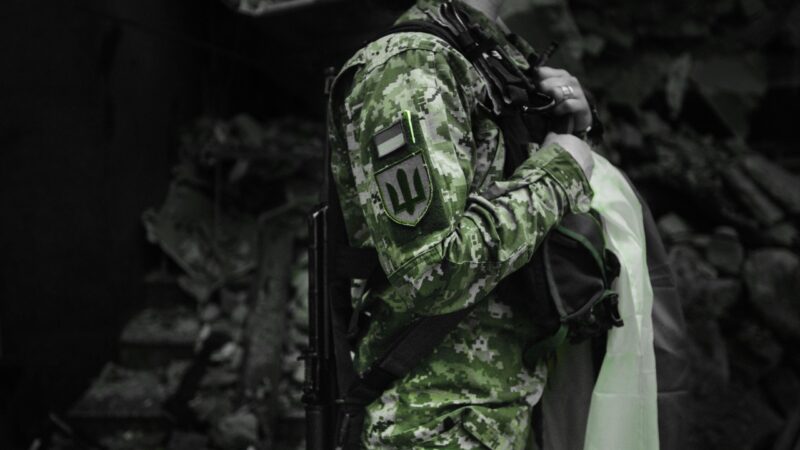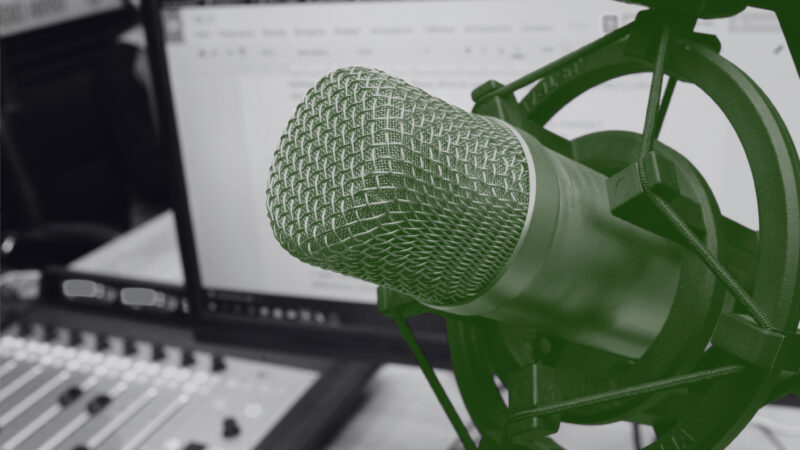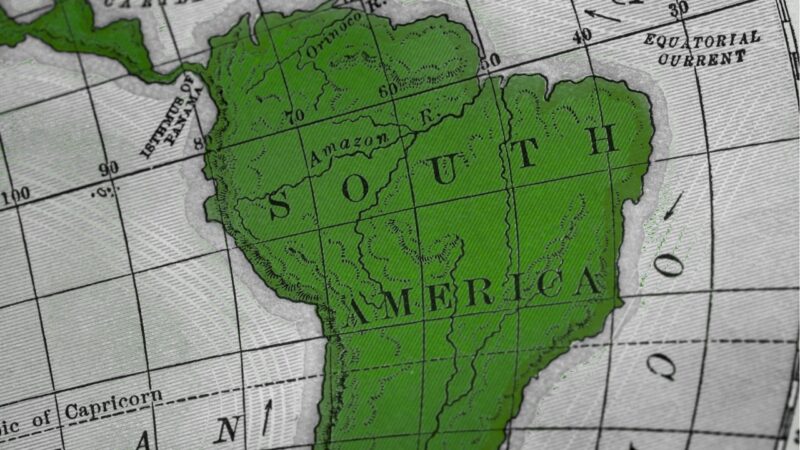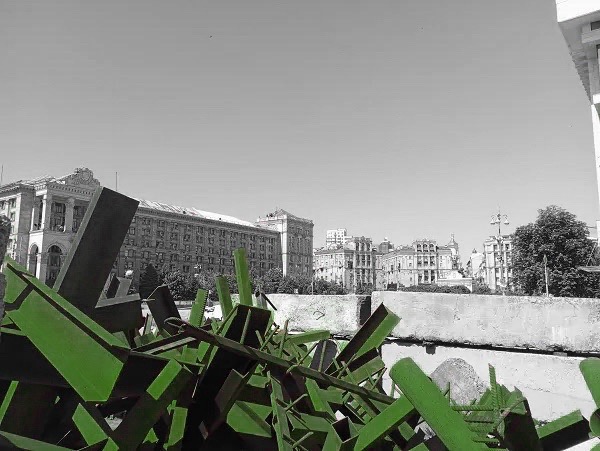Interview with Michael Bociurkiw | “The West either deals with Mr. Putin now on our own terms or later on his terms”
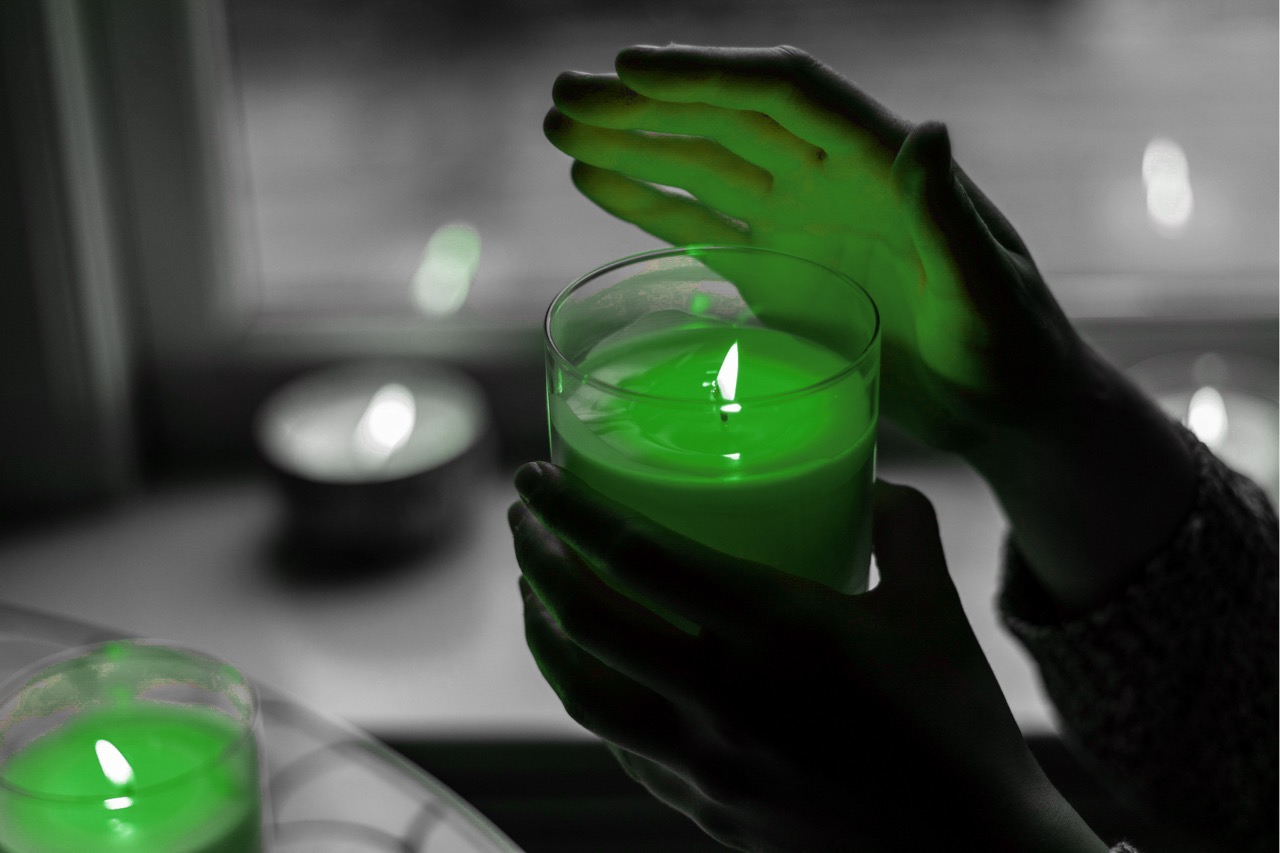
Jars Balan: How do you explain the change in Russian war strategy following the events of early September 2022, when Ukrainians gained the initiative?
Michael Bociurkiw: Russians changed their strategy because they had done very, very badly on the front lines. Russia was just not set up against forces like Ukraine’s, with their professionalism, their determination with Western-provided weaponry, and intelligence. Therefore, Moscow went back to its well-worn playbook used in Chechnya and Syria. They resorted to very violent tactics, and among those was the use of long-range weapons that could hit as far as Lviv or Yavoriv, close to the Polish border.
Later on, in October, they used Iranian-made drones that were sent in very large numbers to places like Kyiv. Because there were so many drones, they confused radars, anti-rocket artillery, and defence systems. All the Russians needed was for a few of these drones to strike in strategic places and cause maximum damage.
More recently, the Kremlin has resorted to striking Ukrainian power and heating plants. They have the benefit of knowing where many of the infrastructural objects are in Ukraine because they were involved in building them [during the Soviet era]. Also, Ukrainian informants let them know where the strategic objects are, so their ability to accurately target these is quite something.
The Russian strategy today seems to be inflicting maximum pain and inconvenience on the Ukrainian people at a time when winter is hitting. Moscow is aiming to cut power, heat, even water. These are war crimes. These are on top of the other acts of genocide that they have committed in Ukraine.
Around April I went with a group of journalists to Chernihiv and its outskirts. That was my first time going to places which the Russians had occupied and bombed quite badly. The experience of seeing the damage that they inflicted was jaw-dropping. I remember a small town outside of Chernihiv with a 500-pound bomb crater in it. We looked inside that crater and saw shredded teddy bears and toys. To us, that showed that a lot of kids used to live in that area. There was no military or strategic reason whatsoever for Russians to drop a heavy bomb in a place like that. Then we went to the sports stadium, which was also badly bombed. Next to it was a completely destroyed children’s library. That was quite an eye-opener to go to these places.
What Russians are doing right now is basically weaponizing energy, weaponizing winter. Staying in Odesa for the last couple of months, I have been observing a very sad thing happening. People are at their wits’ end. They are coping, but their life is very difficult with power outages and lack of water and heating. Also, I am very, very worried about small to medium-sized businesses. Odesa is known as a resilient, innovative, and high-energy city. However, I am concerned about coping mechanisms, about people’s finances, as this war goes on for longer.
Balan: From your observations, what moods and attitudes dominate Ukrainian society today?
Bociurkiw: A really important point is that Ukrainians changed their attitudes towards the war four or five weeks ago, when the first missile attack happened in Kyiv and the downtown Shevchenko Park was hit. I think that what people felt before, in February—the fear of Russian attacks—turned to anger. Real anger. The attitude of Ukrainians became, like, “We are going to make it through this; we will make it all the way to victory, even if we have to live like this for two or three years.” However, Ukrainians are expecting that their suffering and sacrifice will culminate in EU membership.
That being said, if you ask me what help is really needed right now from the West, it is to give Ukrainians more ability to close their skies to the Russian terror—to the missiles, to the drones. On Wednesday 23 November there were seventy or so missiles sent from Russia to various parts of Ukraine. Around fifty of them were shot down. The problem is that the remaining twenty were very accurately targeted and inflicted a lot of damage on critical infrastructure.
Balan: What are Ukrainian society’s major needs today? You mentioned air defence capabilities, but this is on the military list. What about the people, what do they need?
Bociurkiw: I just came from Odesa and an immediate need there is for generators—small, medium, and big sizes. For private businesses and charitable organizations. Generators are becoming difficult to find in Ukraine. They also are becoming more expensive, from 500 to 1000 USD.
To give you an idea of how difficult things are, people are scrambling to buy firewood to heat themselves. And this is in Odesa, on the Black Sea shore! Now, imagine how it is up north. So, probably people would need warm clothing as well.
I think it is a good time for whomever is involved in providing humanitarian aid to go to Ukraine and do a rapid assessment. I am not sure if people here in Canada will like hearing this, but the feeling among Ukrainians is that they would welcome more assessment missions or visits from diaspora leaders. Canadians and other international partners should get a better sense of things on the ground. Also, assessments should not be limited to Lviv but spread further into the country.
Balan: Let us return to the issue of defence. Since the very beginning of the invasion, Ukraine has been pleading for the West to help them with the airspace. Is there any chance, in your opinion, that Ukrainians will get what they ask for?
Bociurkiw: What Ukrainians would welcome—and I think that Poland has been lobbying for that [on their behalf]—is the Patriot [air defence] missile system. However, there has been some opposition from German partners on that one. There have also been suggestions that Israel (which has a bit of a spotty record when it comes to helping Ukraine) provide their Iron Dome system. My understanding is that the Iron Dome is really great technology, but its transfer would require American approval. Also, active help from Israel to Ukraine will put it in a tough spot because Israel works with Russia in Syria.
Who is in a very, very good position to help Ukraine—and has played a key role in opening up the Black Sea to food exports in the “Black Sea Grain Initiative”—is President Recep Tayyip Erdoğan of Turkey. I think he has the respect of President Putin and has access to the Kremlin. He is also much respected by Ukrainians, by President Zelensky, and he made a visit to western Ukraine a few weeks ago with a big delegation. I think that Mr. Erdoğan could negotiate much more than arms supply.
In recent decades, Turks have really gotten deeply into Ukrainian investment. Before the invasion, Turkish Airlines were flying to more destinations in Ukraine than even Ukrainian International Airlines. The Onur, a Turkish construction company, is one of the biggest construction companies in Ukraine today. They are helping to rebuild the damage in places like Irpin. Turks are also selling the Bayraktar drones to Ukraine, and I think they want to actually manufacture them on the ground. The Turks are very pragmatic; but I also believe that thanks to history they will remain trusted friends of Ukraine and very important interlocutors.
Balan: Do you see movement across the NATO countries, apart from Poland and Turkey, to support Ukraine? Europe is being pressured by all these war developments, inflation is on the rise, and the influx of refugees may become even bigger. Will NATO respond more proactively?
Bociurkiw: I was recently in London and the intelligent people asked me “why should we be funding this war effort while we are hardly able to cope with energy bills at home, and we are having inflation?” I just have one answer to that. The West, the civilized world, either deals with Mr. Putin now on our own terms, or we deal with him later on his terms. In between those two poles is a wide range of contingencies that could happen if he is not pushed back. It is also important that he should be pushed back entirely, with the de-occupation of Crimea and Donbas, and return to pre-2014 borders in Ukraine. If Mr. Putin is not taught a lesson, he will try again and go further.
Being in the region, Estonia, Lithuania, and Latvia are, I know, very, very worried about a Russian invasion. The same holds true for the Nordic countries and Poland. So I think, if we are not going to see more action from NATO or the EU, there will be new micro-alliances happening with neighbouring states in order to help Ukraine defend itself, to push Mr. Putin back. The states in the region all feel vulnerable—and for a good reason, especially after what happened in recent weeks.
As we speak, the Russian invasion is spreading beyond Ukraine’s borders. Missiles are landing in Poland and Moldova. I think Western leaders need to wake up to the fact that this is happening!
A lot of Ukrainians were surprised that the Russian invasion did not trigger more reaction or action from the West. They had been speaking about Russia’s threat for many, many months. Today, you start to question yourself, how loud do you have to scream [to get a proper response?].
Let me say this again: Ukraine has the ability to protect its skies 100 per cent. Ukrainians do not need NATO aircraft patrolling, but they need the technology. Until that is acquired, no inch of their country can be regarded as safe. The technology transfer has to happen quickly. My concern is that without effective air defence, it is going to be very, very difficult for normal life to go on. The economy will not likely function to a level where it can continue to last through the war.
Balan: We regularly get reports about the demoralization of the Russian army. Do you think that the scenario of Russian soldiers putting down their guns and walking home is possible?
Bociurkiw: I think that we are witnessing a war where victory depends more on technology and tactics than on men on the front lines. Remember when this full-scale invasion started, everyone said, “Oh, my goodness! Ukraine is up against the second-biggest military in the world.” So what? Russians are using outdated equipment. They have lousy training, bad morale, and tons of corruption.
The other thing is Ukraine has already destroyed much of Russia’s weaponry and equipment. Russians, mostly because of corruption, do not have a well-formed military-industrial complex to restock. So, they go to their buddies in North Korea for ammunition or to Iran for drones. They are in a very bad spot right now, I think. This is recognized by Ukrainians, who continue to press on.
Ukraine has the benefit of much more Western intelligence now, with satellite imagery. I would not be surprised if Western special forces are on the ground in Ukraine providing support. In late November, what is interesting, the United Kingdom sent its helicopters over to Ukraine. I think these helicopters are equivalent to the Sea King vehicles, military transport carriers. It was the first time a Western country gave Ukraine manned aerial devices or equipment to fight back against the Russians.
As I understand it, these helicopters are used in the UK for search and rescue. However, they can also be adapted for patrolling the Black Sea and submarine surveillance, or for moving troops and equipment around. They are basically flying tanks, amazing pieces of equipment. The fact that the UK gave them to Ukraine was a big development, and I think we will see more of that.
In the big picture, what we have seen in this war is a bit of a lack of Western leaders growing the spine to stand up to Mr. Putin. They all know that he has the ability to use nuclear weapons. I think that scares them a lot, but the worst scenario becomes less and less probable because of what has happened in recent weeks. Xi Jinping, the leader of China, has probably told Mr. Putin in no uncertain terms, “Don’t even think about using nuclear weapons.”
However, Russians have a very, very dirty playbook of dirty bombs: biological, chemical, and others. We should also not forget that they occupy the Zaporizhia nuclear power plant, the biggest in Europe. The IAEA (International Atomic Energy Agency—Ed.) is very worried that a stupid mistake will cause an explosion there and we would all pay the price.
We know how careless Russians were with Chernobyl. Today, they could do a deliberate strike on the Zaporizhia NPP and blame it on the Ukrainians. On the other hand, they will have to retreat from the power plant, and on the way out they could do something worrisome. So we have to be very, very careful.
Balan: What about Western media? Has there been a noticeable evolution in the coverage they provide from Ukraine? Have they changed the way they work on the ground?
Bociurkiw: A lot of media institutions—and I find it a positive development—have invested for the long term in Ukraine. We now have, for example, a permanent New York Times bureau in the country. Washington Post and the BBC have really upped their presence, and then CNN—whatever people think of them—have set up simultaneous pop-up bureaus in Kyiv and Lviv.
Having an increased media presence at the beginning of the full-scale invasion and the weeks leading to it was a blessing for me. Not only could I spend a lot of time in the bureau and do my work there, go on air at a moment’s notice, but also it was this camaraderie that was really important. We went with my colleagues through some dark days at that time. So, having the correspondents and producers in Ukraine and brainstorming on different stories was absolutely fabulous. CNN retains a presence in the capital still, and their correspondents have really put themselves at risk, Clarissa Ward and others going very close to the front line.
The amazing thing is that the correspondents not only learned a lot about the country but they want to come back time and time again and do more reporting. Whenever I reach out to producers, whenever my editorial assistant in London, Preeti Bali, and I do pitches, we almost always get a positive response: “Yes, let us know when Michael can come on air.” Producers give us a lot of time. Even in recent days, with what we are competing with—the World Cup and the US midterms—Ukraine features very, very prominently in headlines. Everyone realizes this is a big, big story.
Balan: What is the sense in Odesa of the potential spillover of the war? Russians initially were talking about occupying all of southern Ukraine and uniting with Transnistria on the other side. Are the people of Odesa still afraid of the Russian threat?
Bociurkiw: I think people in Odesa do not expect a sea landing or anything like that today. In terms of Russian strategy, it was a paramount task to secure the land corridor from the Russian border to Crimea. I doubt Russians will have the ability to hold on to that, not to mention uniting with Transnistria. Instead, Ukrainians are looking to at least be in northern Crimea by the New Year. The passages to the peninsula will be the focus of action in the next few weeks.
Odesa is a very, very well protected city. It has three strategic ports. Again, these are the anchors of the Black Sea Grain Initiative, where Ukrainian grain, sunflower oil, and other agricultural products are now being exported to world markets. Russia recently agreed to renew the deal for another 180 days. However, if Odesa continues to be plagued by power blackouts, how are the ports supposed to function if there is no electricity? I have a feeling that Moscow did sign the renewal of the deal, but they knew that they were going to work in the background to degrade infrastructure and energy so that the port could not export anymore. That is the way the Kremlin works.
Balan: In the course of the war, many times already Ukrainians have surprised their Western partners with improvisation and uncanny military solutions. Any idea what could be next? What other tricks do Ukrainians have up their sleeve?
Bociurkiw: The recapture of Kherson was a big signal to the West that their investment is paying off and that Ukrainians know what they are doing. They are to be trusted, and they do not give up. Moreover, I think Ukrainians have been very careful with telegraphing military strategy. I frankly do not know their plans. That being said, if Ukrainians continue at this pace I cannot see Russians having much success physically on the battlefield.
Look at the bungled mobilization in Russia. The recruiters had to go to prisons and get convicts to send to Ukraine. They also recruited homeless people and derelicts. There is no lack of video on social media about whom Russia has deployed in Ukraine, their equipment and uniforms. Therefore, I do not think that the newly mobilized soldiers will make a big difference.
Ukrainians have a clear advantage in the war today, especially with the new kit that is being sent by the West. Also, the training has been very good. Ukrainians have the wind behind them, so to speak. A lot of experts have commented about winter and how it will slow the fighting down, but I think still that Ukrainians have the advantage of “going for it.”
Oleksandr Pankieiev: Do you see that Ukraine right now may be missing some voice in the international arena?
Bociurkiw: A real area that I am concerned about in terms of Ukraine’s ability to get its messaging out is the diplomatic posts. There have been across-the-board budget cuts since the start of the invasion. I know for a fact that many Ukrainian embassies and consulates are shorthanded. It is really important for them, for example, to more effectively use social media, get out to the media; however, they cannot do this without the proper resources. Today is totally the wrong time to be cutting the budgets of Ukrainian diplomatic posts.
Therefore, communication is an area where the worldwide Ukrainian diaspora can help Ukraine. I do not think they are of the mindset to actually come out and ask for help. So I think that diaspora leaders should go to the consuls and ambassadors and ask what they need and what help they expect.
Pankieiev: Many experts believe that it is worth trying to break the informational wall around Russia and influence those people directly. Is it something that you think is worth trying?
Bociurkiw: I think there are Russians who can be influenced and those who cannot. Do not forget that when the mobilization happened, most Russians were protesting against the mobilization—not against the war. That is an important point to reiterate.
I have never been a big supporter of sanctions. However, I think that if there are more sanctions put on Russians, it will bring positive effects in this unique situation. I think that if the livelihoods of Russians are affected, if they cannot make trips abroad or buy certain goods, then some constructive reaction may follow.
The primary area to target is the influential circle around Mr. Putin. They should not be able to travel to the Maldives, even to Turkey, to Dubai. I think the US administration, the UK, have to work harder at influencing the Gulf states to plug these gaps in the sanctions. I mean, I just transited through Istanbul airport and it is full of Russians and Russian-language signs. Russians are even able to use their credit cards there. It is getting a little bit more difficult, I understand, but they are still able.
An important thing to keep in mind—and I am reminded about it by correspondents who have served in Russia—is that only a small segment of the population has foreign travel passports or is able to travel. The majority does not. So, it is a very complex issue. At the same time, millions of Russian nationals live overseas and send their kids to elite schools there. A lot of Russian properties are probably still owned in places like Toronto’s Bridle Path or in Vancouver. Are you trying to tell me this is not ill-gained wealth? Let us take a closer look there. I think that would also send a very strong message.
